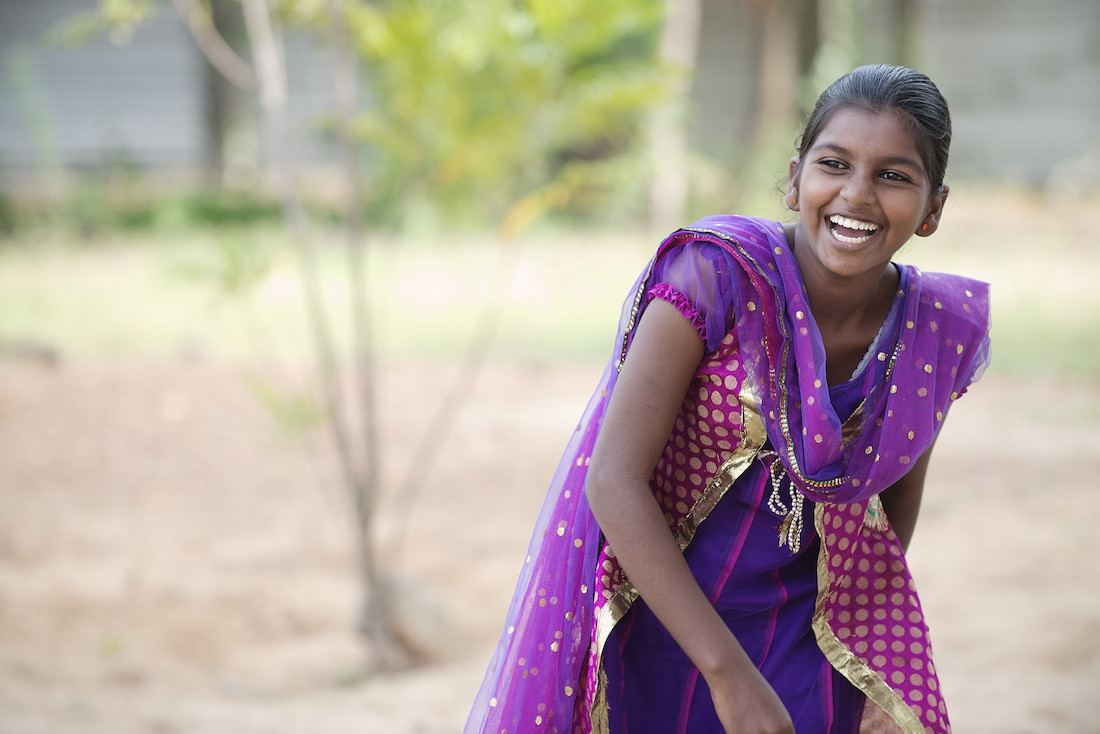Sri Lanka
Children affected by conflict: 900,000
Budget spent: €212,908
Number of partner organisations: Three
Number of projects: Three
Total child participants: 49,415 (25,413 girls and 24,002 boys)
Total adult participants: 37,815 (19,442 women and 18,373 men)
Sri Lanka is undergoing a process of recovery and transition following the bitter 26-year civil war between government forces and armed insurgents that came to an end in 2009. Significant steps towards constitutional reform were taken during 2016. A new constitution is being drafted to help promote national reconciliation efforts and is scheduled to be put to a referendum in 2017.
The new Sri Lankan administration acted to address other longstanding demands for accountability over the course of 2016. A Right to Information bill was passed into law in June and a public consultation on implementing UN recommendations on transition justice was also held.
Government pledges to abolish the draconian Prevention of Terrorism Act were not met. Instead the preventive detention law was invoked during a nationwide series of arrests in April and May. The year also saw Sri Lankan security forces accused of human rights abuses against suspected members or supporters of the Liberation Tigers of Tamil Eelam (LTTE).
The legacy of the conflict continues to have a significant effect on children growing up in Sri Lanka. Child protection structures are underdeveloped and many children are engaged in child labour or serve as heads of households.
Highlights
War Child was officially registered as an acknowledged NGO by the Sri Lankan government during 2016. This will allow the Sri Lanka office to undertake fundraising activities inside the country and step up advocacy efforts at the highest levels of government. The decision will also allow us to strengthen our network of community-based child protection systems.
The EU-funded child rights initiative in Batticaloa district was brought to a successful conclusion in June. All targets for beneficiaries were met and the project was delivered under budget. This project was also externally evaluated.
Beneficiary targets were met for all three War Child programmes inside Sri Lanka - although variances were noted across different projects and locations.
Challenges
The Country Director of Sri Lanka was assigned to take up temporary responsibility for War Child’s programmes in South Sudan for a nine-month period - leading to challenges in day-to-day management of the Sri Lanka office.
Certain events, programmes and community gatherings were delayed or postponed due to security concerns following anti-government protests in the east and north of Sri Lanka.
Projects
War Child supports local organisations in Sri Lanka to provide education and psychosocial support for children affected by the armed conflict. War Child also works with local government and community-based authorities to develop and strengthen community systems that serve to support children. These partnerships help to protect children and young people from abuse, violence and sexual exploitation.
 © Geert Snoeijer
© Geert SnoeijerSafe Learning Spaces - Community Mobilisation for Protecting Children: Delivering education and psychosocial support to out-of-school children in remote areas in the Northern Province of Sri Lanka.
Action for Children and Youth in Batticaloa District: Working with local government, schools and communities to provide psychosocial support in the east of Sri Lanka.
Empowering Children and Youth as Child Rights Advocates in Batticaloa District: Initiative to increase the participation of voiceless young people in local decision-making processes. Concluded in June 2016.